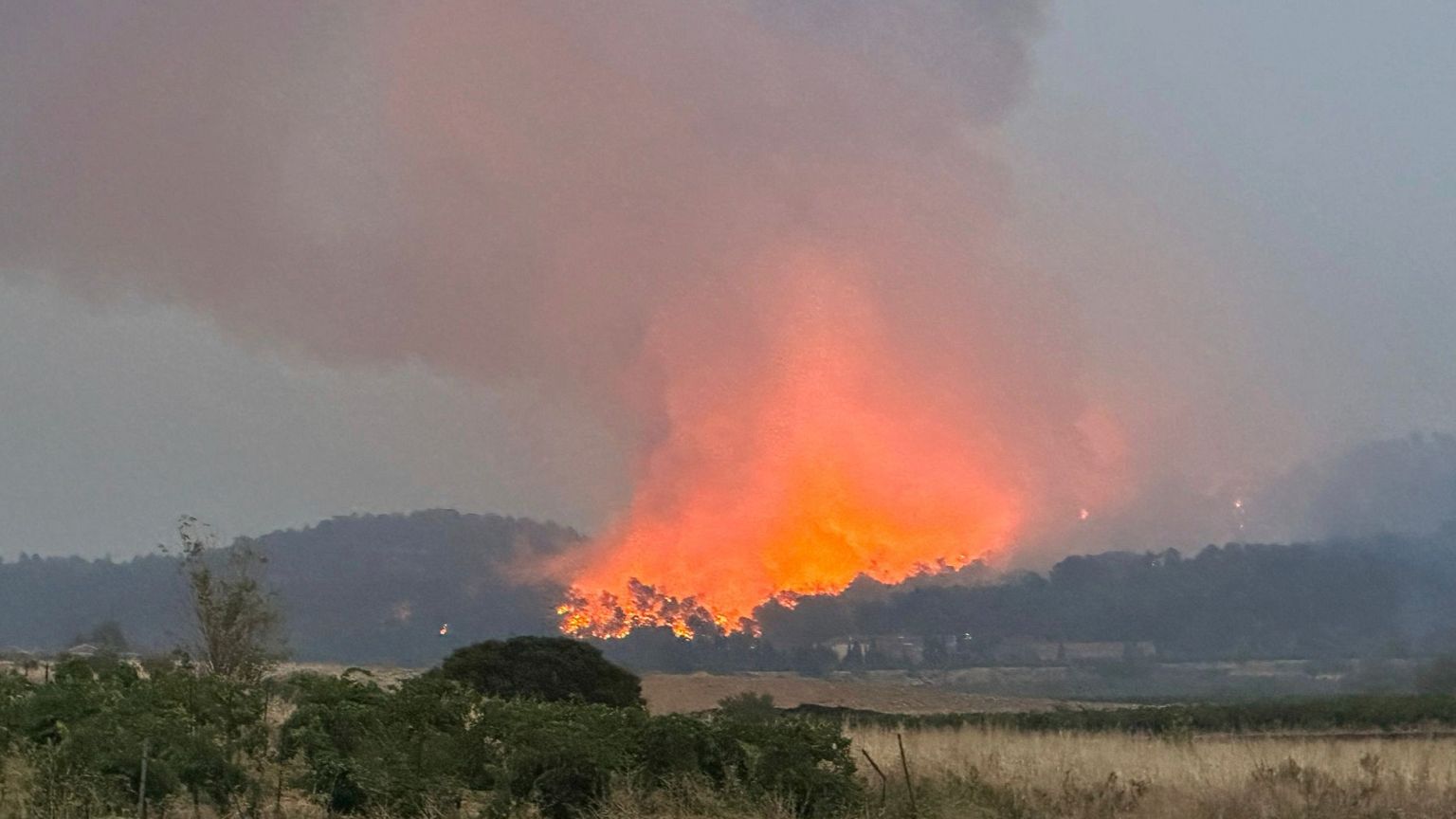Health
Wildfires Rage in France: Health Risks and Essential Protections

A severe wildfire has engulfed the Aude region in southern France, burning over 160 square kilometres and resulting in the destruction of property and at least one confirmed death. French Prime Minister François Bayrou described the situation as a “catastrophe on an unprecedented scale,” marking the largest wildfire in France since 1949. The country is not alone in this crisis; several European nations, including Greece, Portugal, and Spain, are also battling intense wildfires this summer.
The health implications of wildfire smoke extend far beyond the immediate destruction of land and property. Smoke from wildfires can travel thousands of kilometres, causing significant air pollution. Experts suggest that wildfire smoke poses unique health risks, potentially more harmful than other types of air pollution. Vulnerable populations, including children, older adults, and individuals with pre-existing health conditions, face a heightened risk of complications.
Five Ways Wildfires Impact Health
Understanding the health risks associated with wildfire smoke is crucial for preparedness and protection. Here are five critical ways that wildfires can affect human health:
1. **Respiratory Irritation**
Wildfire smoke is laden with tiny pollutants, specifically fine particulate matter known as PM2.5. These particles can penetrate deep into the lungs, leading to symptoms such as coughing, chest pain, and stinging eyes. Moreover, exposure to this type of pollution can worsen asthma and has been associated with pneumonia.
2. **Organ Damage**
Research indicates that PM2.5 can enter the bloodstream, instigating inflammation and impacting various organs, particularly the heart. There is a concerning correlation between smoke exposure and an increased risk of sudden cardiac arrest and heart attacks. According to the World Health Organization (WHO), PM2.5 can also exacerbate issues related to the gut, skin, kidneys, and liver.
3. **Mental Health Issues**
The psychological toll of wildfires can be severe. Victims often experience heightened risks of depression, insomnia, and even post-traumatic stress disorder (PTSD), as noted by the European Environment Agency (EEA). A recent study highlighted a dramatic rise in suicide and overdose rates following the devastating wildfires in Maui in 2023, underscoring the long-term mental health implications of such disasters.
4. **Cognitive Impairment**
Exposure to wildfire smoke can lead to cognitive decline and memory issues. Research published by the WHO found that prolonged exposure to wildfire pollutants may increase the likelihood of dementia diagnoses. Another study indicated that adults experienced shorter attention spans within hours of exposure to smoke pollution.
5. **Increased Cancer Risk**
Long-term exposure to wildfire smoke may elevate the risk of developing lung cancer and brain tumors, although further research is necessary to establish definitive links. A comprehensive review in 2022 found correlations between PM2.5 and other hazardous chemicals in wildfire smoke and increased cancer risks among firefighters and residents in wildfire-prone areas of the western United States.
Protecting Yourself from Wildfire Smoke
As wildfires continue to pose a threat, it is essential to take proactive measures to safeguard your health. In areas affected by the wildfires in France, local authorities are advising residents and tourists to remain indoors unless evacuation is necessary.
Air quality monitoring company IQAir recommends several steps to minimize exposure to smoke. People should close all doors and windows, set heating and cooling systems to recirculate indoor air, and consider using air purifiers. If it is necessary to go outside, wearing a KN95 mask can help reduce inhalation of harmful pollutants.
As wildfires rage across Europe, understanding their health impacts and taking preventive measures is vital for protecting oneself and the community.
-

 Health3 months ago
Health3 months agoNeurologist Warns Excessive Use of Supplements Can Harm Brain
-

 Health3 months ago
Health3 months agoFiona Phillips’ Husband Shares Heartfelt Update on Her Alzheimer’s Journey
-

 Science1 month ago
Science1 month agoBrian Cox Addresses Claims of Alien Probe in 3I/ATLAS Discovery
-

 Science1 month ago
Science1 month agoNASA Investigates Unusual Comet 3I/ATLAS; New Findings Emerge
-

 Science4 weeks ago
Science4 weeks agoScientists Examine 3I/ATLAS: Alien Artifact or Cosmic Oddity?
-

 Science4 weeks ago
Science4 weeks agoNASA Investigates Speedy Object 3I/ATLAS, Sparking Speculation
-

 Entertainment4 months ago
Entertainment4 months agoKerry Katona Discusses Future Baby Plans and Brian McFadden’s Wedding
-

 Entertainment4 months ago
Entertainment4 months agoEmmerdale Faces Tension as Dylan and April’s Lives Hang in the Balance
-

 World3 months ago
World3 months agoCole Palmer’s Cryptic Message to Kobbie Mainoo Following Loan Talks
-

 Science4 weeks ago
Science4 weeks agoNASA Scientists Explore Origins of 3I/ATLAS, a Fast-Moving Visitor
-

 Entertainment4 months ago
Entertainment4 months agoLove Island Star Toni Laite’s Mother Expresses Disappointment Over Coupling Decision
-

 Entertainment3 months ago
Entertainment3 months agoMajor Cast Changes at Coronation Street: Exits and Returns in 2025









